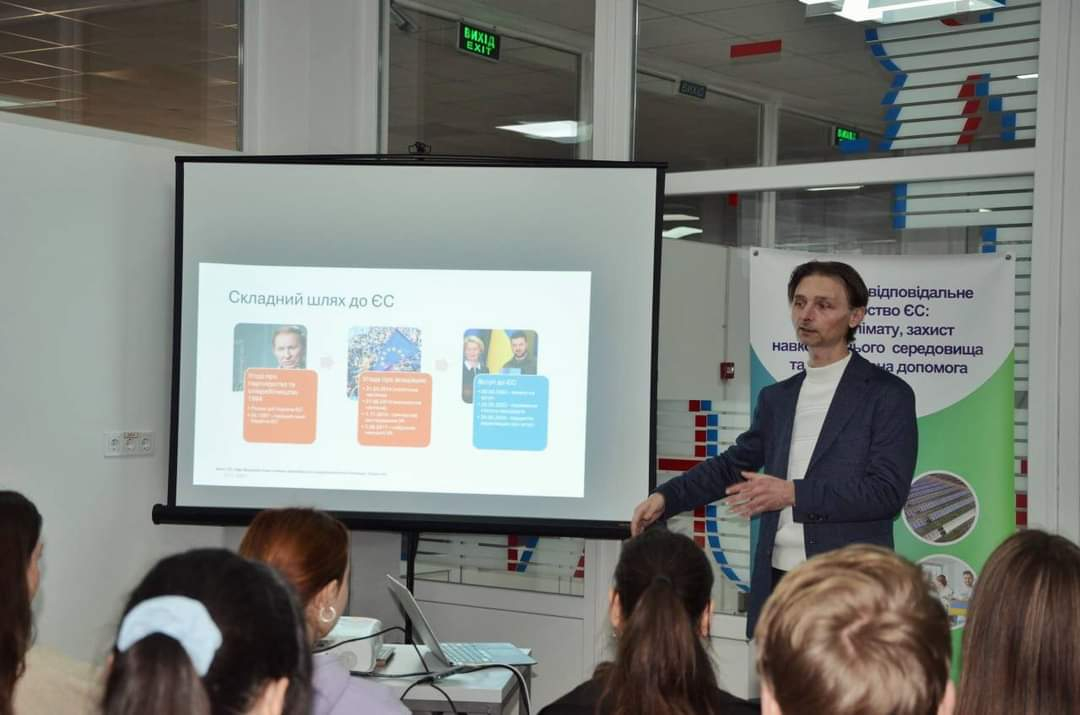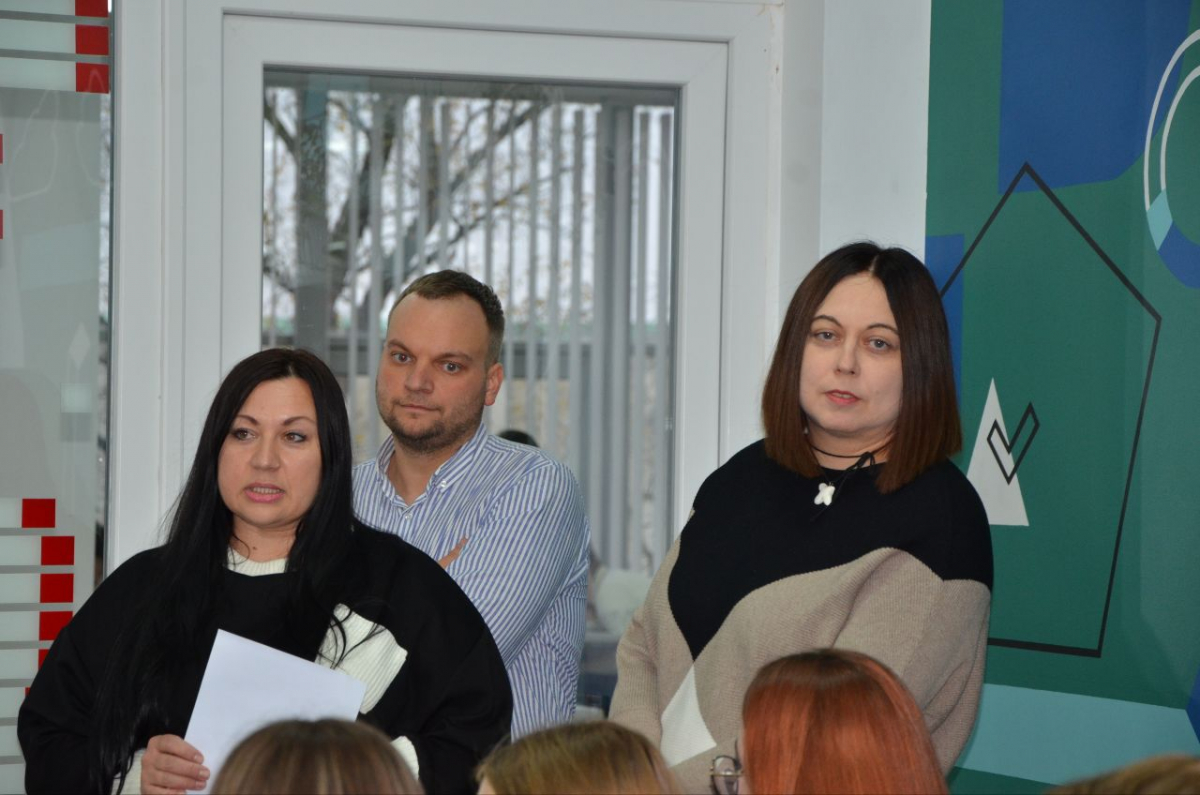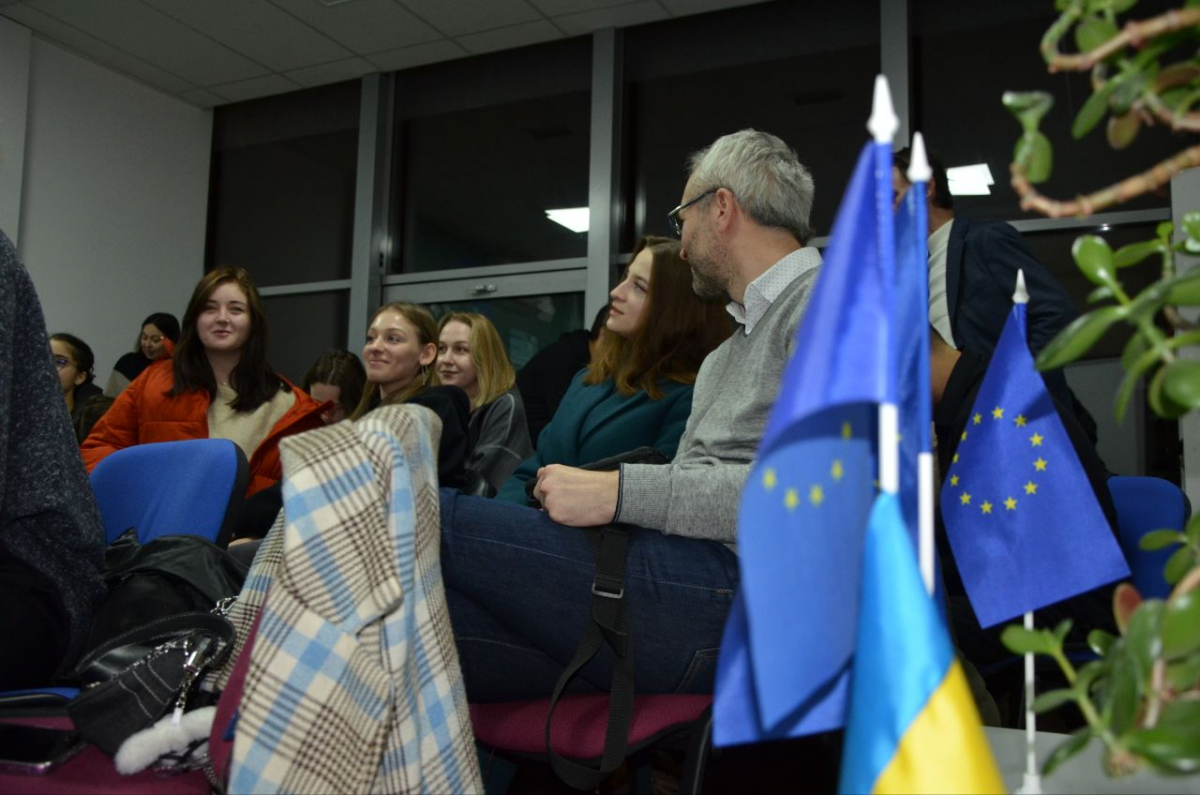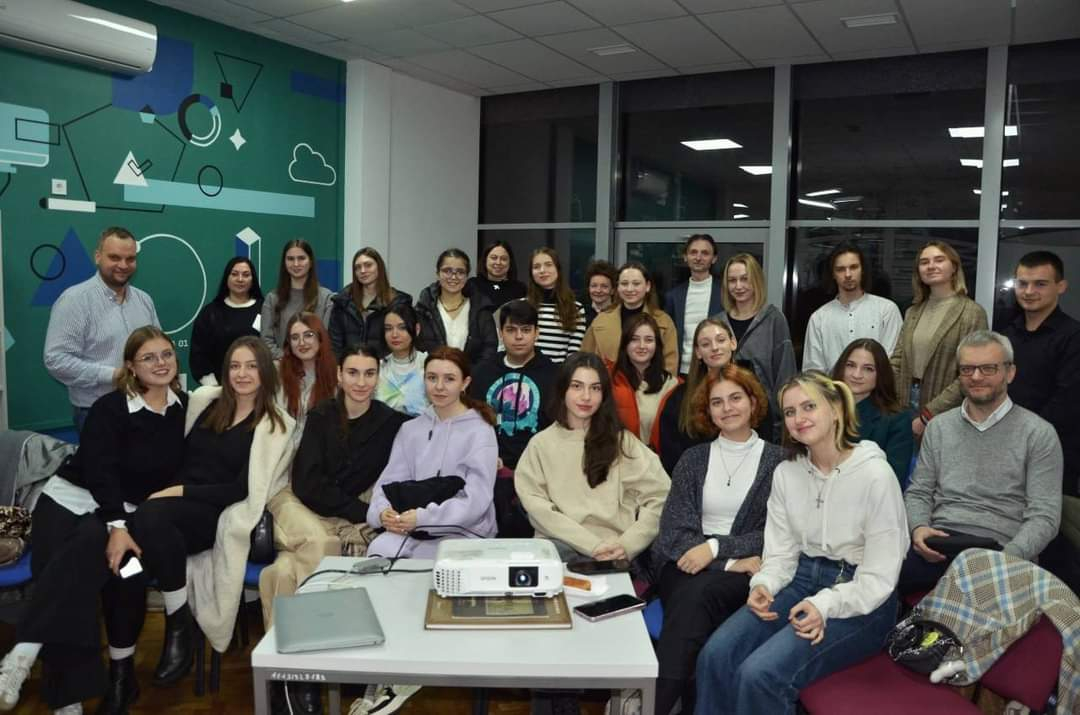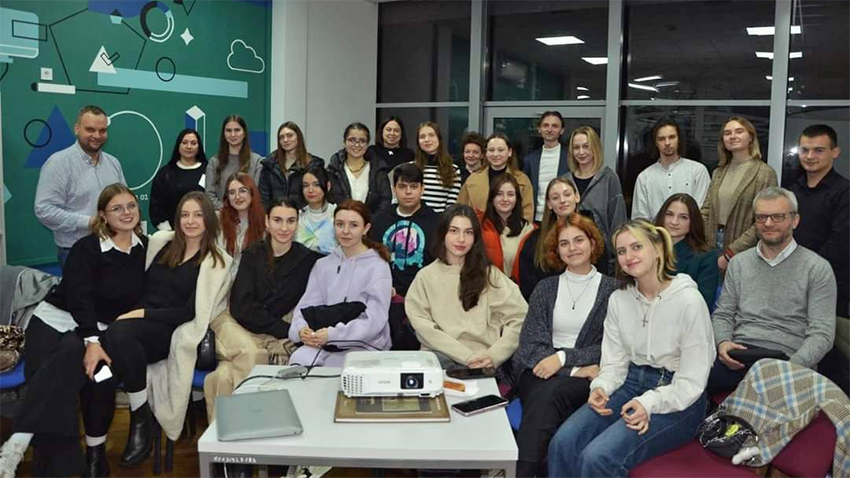On November 12, 2024, a meeting of the was held in the student space of the library of Lviv Polytechnic National University within the framework of the EU Global Responsible Leadership for Climate Change, Environment and Humanitarian Aid (EU_LEAD) project with the support of the Erasmus+ Jean Monnet Program and in partnership with the Resource and Analysis Center “Society and Environment” with the support of the International Renaissance Foundation within the framework of the project “Towards EU Membership: Advocacy for Environmental and Climate Issues”.
This time, the format of the Euroclub meeting was special - in the format of a “training” on the topic “Environmental and Climate Dimension of Ukraine's Accession to the EU”. The purpose of the eco-training was to raise awareness of the academic community about the EU accession process in terms of the environment and climate change.
The event was attended by two speakers, namely:
- Andrii Andrusevych, Senior Analyst at the Resource and Analysis Center “Society and Environment”, whose topic was: “European integration of Ukraine: the way from the Partnership Agreement to EU membership”;
- Zoryana Kozak, Senior Research Fellow at the Resource and Analysis Center “Society and Environment”, will speak on the topic: “Chapter 27 “Environment and Climate Change”.
The training consisted of two parts, namely: general (general European integration issues, functioning of the EU, EU acquis, negotiation process) and special (issues related to Chapter 27 “Environment and climate”). The trainers' presentations were combined with practical exercises and networking.
Andriy Andrusevych emphasized that Ukraine's accession to the EU is a large-scale work on adapting legislation, implementing reforms and achieving European standards in various fields and answered the question: who is behind these changes and what has Ukraine already done to approximate legislation in the field of environment and climate change? It was also noted that the start of negotiations means the following: the country undertakes to meet the EU criteria. For the purposes of the negotiation process, the acquis is divided into 35 “negotiating” chapters, organized into clusters, each of which covers key areas of public policy.
Analyst Zoryana Kozak emphasized that, according to the results of the self-screening, 13 out of 156 acts in the field of environment and climate change have already been implemented (Chapter 27 “Environment and Climate Change).” In addition, the speakers stated that Ukraine has to implement a much wider list of EU regulations than provided for in the Association Agreement. This includes environmental and climate change issues that intersect with many sectors, such as energy, industrial policy, agriculture, and transportation. This will require considerable time and resources, including the translation of EU documents on the environment and climate change.
The training participants also focused on the fact that Ukraine's accession to the European Union is not only about legislation, but also about the joint efforts of society, business, and the state. The EU sets clear benchmarks, but only together can we go this way faster. The implementation of EU norms opens up new opportunities for everyone. For businesses, it means new markets and prospects, and for people, it means new jobs and higher living standards.
During the Euroclub meeting, the speakers took turns sharing interesting and relevant information with international students, graduate students, teachers and EU_LEAD team members. The students liked the format of the “training” very much, as they had the opportunity to learn more information on the topic of the presentation, ask questions, discuss and share their knowledge.
The event was attended by 29 participants. The EU_LEAD project team sincerely thanks all the participants and speakers and continues to prepare other equally interesting events!
More information about EU_LEAD is available on the project website within the Lviv Polytechnic Portal.
